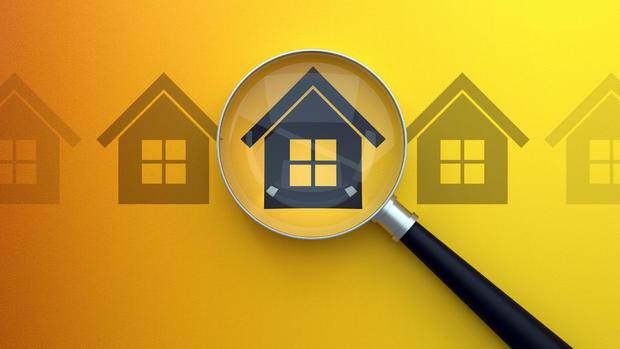What is a no-appraisal home equity loan?
In today's high interest rate environment, many people struggle to find affordable financing options. If you need to borrow money, racking up charges on your credit card or taking out a personal loan can be expensive. That's why some homeowners prefer to tap into their equity with a home equity loan or home equity line of credit (HELOC) instead. These types of loans tend to provide financing at lower interest rates than credit cards and personal loans.
Home equity loans can be particularly useful if you want to borrow a large amount at once and have fixed payments, such as for some debt consolidation situations. Typically, you need to get an appraisal to borrow against your home equity, but that isn't always necessary.
For instance, a no-appraisal home equity loan can use an automated valuation system (AVM) to basically assess your home's worth instantly. Let's take a look into what no-appraisal home equity loans involve.
Learn more about the home equity borrowing options available to you now.
What is a no-appraisal home equity loan?
An appraisal provides a current valuation of an asset, like your home, by analyzing factors like the home's condition and comparable sales in the area. But with a no-appraisal home equity loan, that process isn't required as a condition for obtaining the loan.
"Some home equity loan programs do either an AVM using available sales data or use tax value as their baseline. So, if either of those systems or reference points provides a value sufficient to allow the home equity loan to be done, a formal appraisal is not needed," says Mason Whitehead, branch manager at Churchill Mortgage.
The exact value can vary based on the circumstances, but many home equity loan lenders want to see your combined mortgage and home equity loan debt not exceed 80% of your home's value.
Compare the top home equity loan options you could qualify for here.
What are the pros of a no-appraisal home equity loan?
One of the top advantages of no-appraisal home equity borrowing is that it's faster than traditional home equity loan applications.
"Skipping the appraisal step can be particularly advantageous, especially in situations where quick access to cash is important," says Alexander Suslov, head of capital markets at A&D Mortgage.
How much time you can save depends on where you live.
"This is typically the item that we wait on the longest — especially for homes not in a major metro area," says Whitehead. "So, if you can avoid the appraisal requirement, it can save you anywhere from a week to multiple weeks of waiting."
Plus, you can avoid appraisal fees.
"This saves the consumer money in closing costs," says Carma Peters, president and CEO at Michigan Legacy Credit Union.
What are the cons of a no-appraisal home equity loan?
While the efficiency of no-appraisal loans can be appealing, there are potential downsides to consider, such as potentially not getting an accurate valuation.
"For the borrower, there is no exact value of their home if they would want to know," says Peters. Meanwhile, lenders take on the risk of not seeing the exact condition of a home from the inside, she adds.
In some cases, that can increase interest rates, which might outweigh the benefit of lower closing costs, depending on the specifics.
"No-appraisal home equity loans typically have higher interest rates than their traditional counterparts. Working without an appraisal makes lenders consider it a 'risk' not knowing the property's current value when offering loan terms," says Suslov.
Even if the rates are the same, you might not be satisfied without an appraisal if the valuation isn't high enough to borrow as much as you'd like.
"Some programs that use an online AVM system and will not do an appraisal may not value your home at an amount that you believe is reasonable, and you want an appraisal to show that your home is worth more," says Whitehead.
How do you get a low-interest-rate, no-appraisal home equity loan?
Although no-appraisal home equity loans sometimes have higher interest rates than traditional ones, that doesn't mean you always have to pay more. For starters, you can get a sense of whether you even need an appraisal by using widely available estimates of home values online.
Even if those aren't always accurate, you can still compare that to your mortgage balance and desired home equity loan balance to see if you fall under the typical combined loan to value ratio of 80%.
"Look up the value of your home on a site like Zillow to get a rough idea and ask your lender if an appraisal is necessary or required," says Peters.
Make sure you're comparison-shopping home equity loan lenders, too.
"Home equity loan rates can vary a lot by institution type, whether it is a bank, credit union, mortgage banker, etc. So really you just need to look at your options," says Whitehead.
Also, consider more than just the headline interest rate in order to find lower total costs.
"Make sure you shop not only rates but fees," says Peters. "Especially if you are adding the fees to the loan, you are paying interest on the fees over the life of loan, which means your total interest paid could be higher than a higher rate with no closing costs added in."
The bottom line
A no-appraisal home equity loan can save time and lower closing costs by not requiring a formal appraisal, but it sometimes leads to higher interest rates and lower loan limits. Be sure to compare your options to see how the total costs compare between different types of home equity borrowing.




